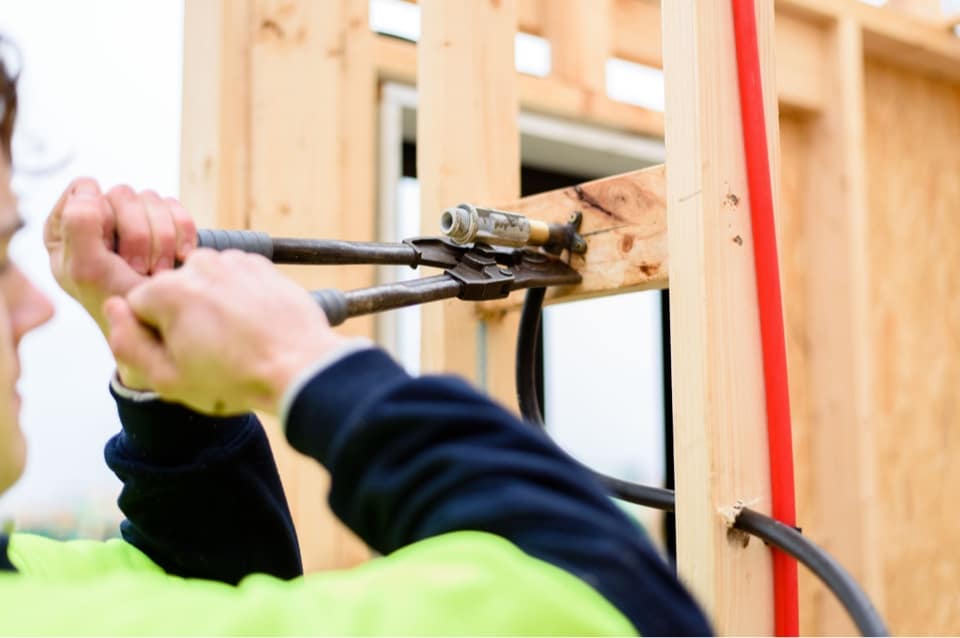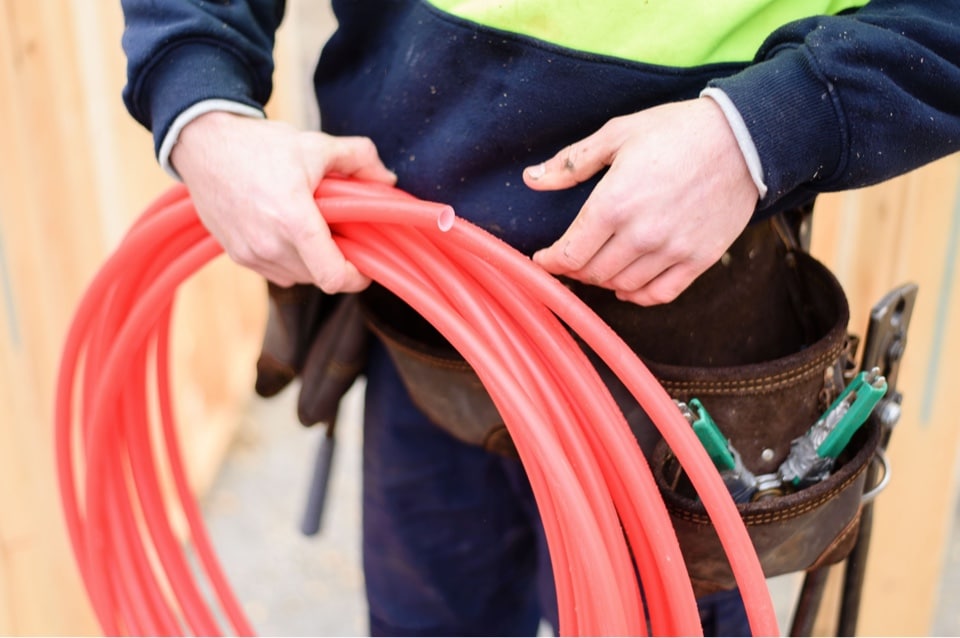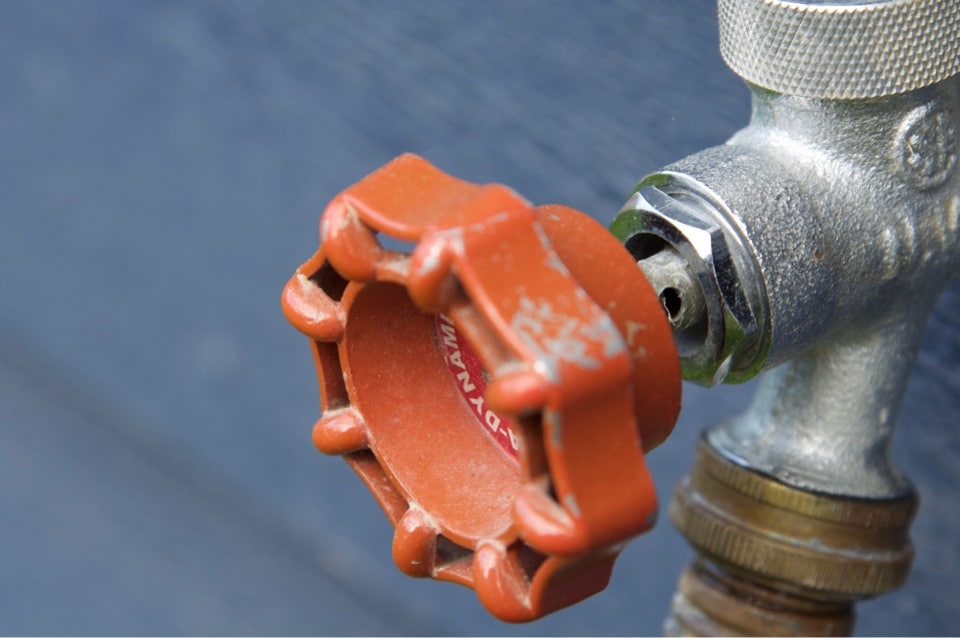FINDING THE RIGHT CAREER PATH IN THE CONSTRUCTION INDUSTRY: CARPENTER VS PLUMBER

It’s never easy to make those big career decisions. That’s why we’ve crafted this blog to help you choose.
Read on to learn more about the differences between the carpentry and plumbing to figure out which one’s right for you.
The Carpenter
Picture yourself working as a carpenter. You’ll build and fix home framing, windows, doors, cabinets and many other things. You’ll report to a boss, or maybe even work in your own small business.
You’ll work on the design, construction, and installation of buildings, furniture, and other wood structures. You’ll also work with a variety of power tools and equipment to cut, shape, and join wood, as well as read blueprints and building plans.
Other job duties that carpenters work on include:
- Work from drawings and designs
- Order materials and cut them to size
- Assemble parts or pre-prepared structures
- Work with timber, laminates, perspex, metals and more
How much is the average carpenter salary in Australia?
You’re probably curious about how much you could earn as a carpenter. While the amount varies depending on your location and level of experience, we can look at some statistics to get an estimate.
According to the Australian Government’s careers website JobOutlook, Aussie carpenters earn a typical salary of $1,358 per week before tax.
JobOutlook notes that this salary is based on full-time non-manager jobs for adult workers. This salary figure gives you a rough guide, and is not an official figure of what your wage should be.
Pathways for carpenters
One of the key benefits of pursuing a career in carpentry is the ability to work on a wide range of projects, from large-scale construction sites to smaller residential projects. This allows carpenters to gain experience and expertise in a variety of areas, making it a versatile career choice.
If you want to start a carpentry career in Australia, you’ll get your qualification through a combination of work and study.
You study a CPC30220 Certificate III in Carpentry part time while doing a 4-year apprenticeship with an employer.
This allows you to earn a modest income while learning all the skills you need on the job in a hands-on way.
If you’re an Australian, you could be eligible for government subsidies to fund your studies. Get in touch with BAA, and we’ll help you work out if you’re eligible.
If you’re from overseas and you want to get a work visa as a carpenter in Australia, you’ll have to prove your qualifications and experience.
If you already have your training and plenty of experience in your home country, you can do a carpenter skills assessment with Trades Recognition Australia.
Alternatively, if you don’t have enough years of work experience in your home country, you can do a carpentry apprenticeship program or a CPC30220 Certificate III in Carpentry in Australia. Then, through the government’s Job Ready Program (JPR), you can get your carpenter work visa just one year after your certificate.
Upskilling from carpenter to builder
Becoming a carpenter in Australia is a great job because it lets you work on the tools for a while and then upskill if you want to.
If you want a more challenging job, to own your own business and earn a higher salary, you can go from carpenter to builder.
A builder has a building licence and manages carpenters and other tradies while they create homes and buildings.

The Plumber
Like carpenters, the plumber is a construction tradie who does skilled work.
Plumbers work in setting up and fixing pipes, drains and gutters. You’d also work with related systems like water, gas, sewerage and heating and cooling.
Envision yourself doing some of these daily tasks:
- install or repair plumbing, sewage or gas from designs and specs
- set up hot and cold water systems
- build water-based fire safety systems like hydrants, hose reels and sprinklers
- assemble machines like air conditioners
- maintain metal roofing, gutters and rainwater tanks
How much is the average plumber’s salary?
To give you a rough idea of what you could earn if you choose to become a plumber, let’s take a look at some statistics.
According to the Australian Government’s JobOutlook, Aussie plumbers earn a typical salary of $1,894 per week.
This salary is for a full-time non-managing worker paid at the adult rate before tax. It’s based on the ABS Survey of Employee Earnings and Hours (cat. no. 6306.0), Customised Report.
Pathways for plumbers
One of the key benefits of pursuing a career in plumbing is the high demand for skilled workers in this field. As cities and towns continue to grow and expand, the need for reliable plumbing services increases.
This makes plumbing a stable and secure career choice with many opportunities for growth and advancement. Plumbers also have the satisfaction of knowing that they are providing an essential service that is critical to the health and safety of the public.
If you want to become a licensed plumber, you’ll need your qualification.
Take the CPC40920 Certificate IV in Plumbing and Services to learn all of the skills you’ll need and get job-ready for employment.
We recommend doing your Cert IV in Plumbing Services with a registered training provider like BAA. We’ve got decades of experience training thousands of Aussie plumbers in the Cert IV in Plumbing Services, and our trainers are second to none.

Carpenter vs Plumber
Whether you become a carpenter or a plumber, you’ll have a rewarding career with plenty of job opportunities in the future.
The choice between the two really depends on your interests and preference. If you want to build things like houses, or eventually become a licensed builder, then carpentry’s for you.
Or if you prefer working with systems and machines, or possibly as a sole trader, then plumbing could be the right choice for you.
Either way, both carpenters and plumbers need construction qualifications like the Certificate III in Carpentry or the Certificate IV in Plumbing Services.
Still not sure if you prefer carpentry to plumbing? To learn more about the different trades, read our article Which Construction Trade is Right for You?.
Got questions about the Cert IV in Plumbing Services or the CPC30220 Certificate III in Carpentry (CPC30220)?? Give us a call today on 1300 534 363 (LEGEND) or complete the online form, and one of our course advisors will get in touch soon.
